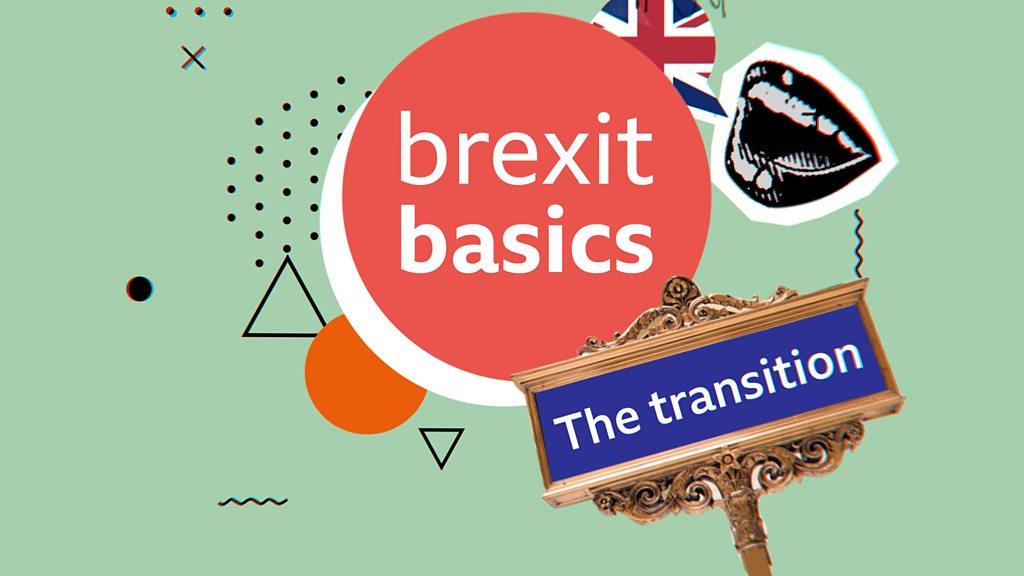Brexit: What will UK's exit from EU mean for Stormont?
- Published
- comments
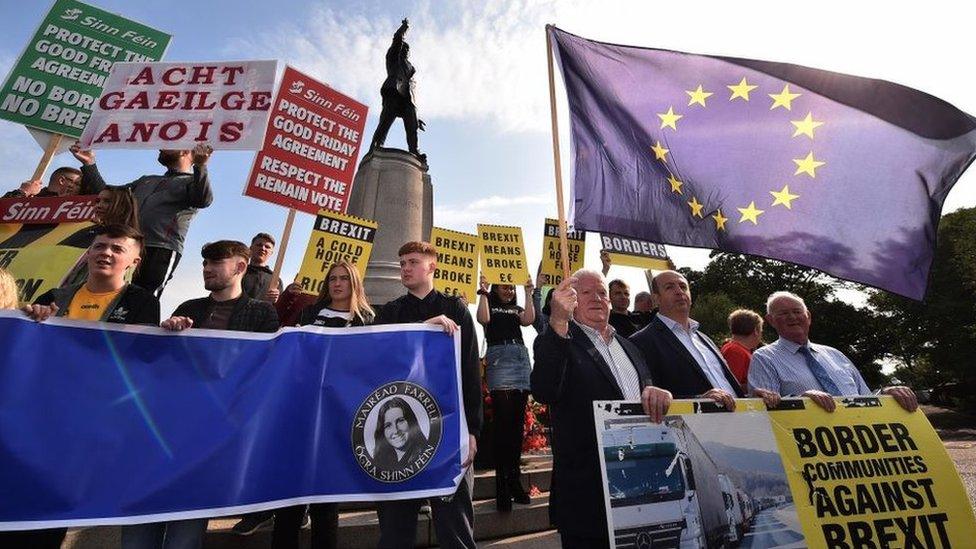
An anti-Brexit protest was held outside the Northern Ireland Assembly last year
The UK is due to leave the European Union on Friday at 23:00 GMT.
Brexit is happening just weeks after the return of devolution in Northern Ireland, following three years of political deadlock.
But are the parties and officials at Stormont prepared for what comes next?
What does Stormont think about Brexit?
There are 90 assembly members in the Northern Ireland Assembly, all with varying perspectives.
The Democratic Unionist Party (DUP) - the biggest unionist party - was originally in favour of Brexit, while the largest nationalist party - Sinn Féin - opposed it.
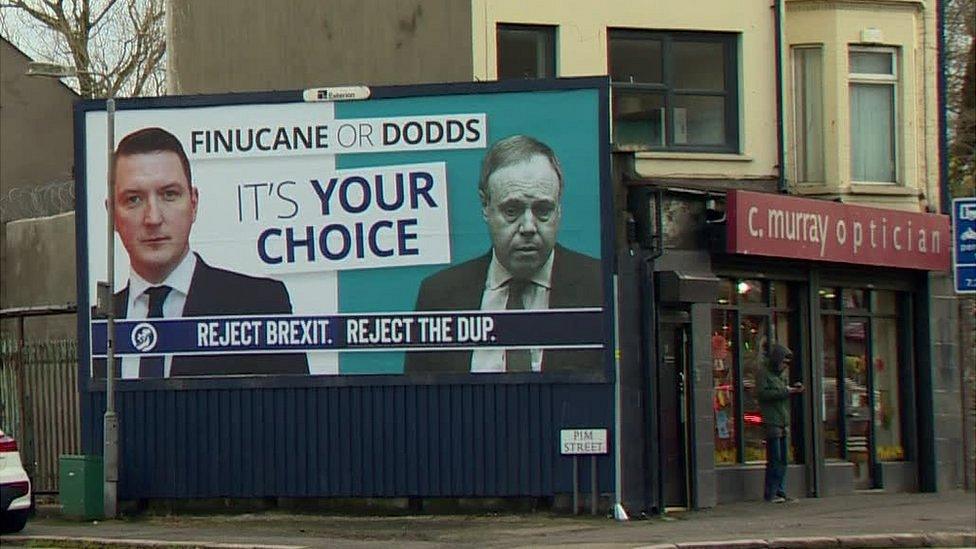
The DUP and Sinn Féin fought each other along Brexit battle lines during last year's general election campaign
Brexit was a dividing line between them during the general election campaign - but since devolution has returned, they have had to change course.
They now share power together in the Stormont executive, and will have to present a united front to No 10.
Along with the smaller parties, they unanimously rejected Boris Johnson's Brexit deal and what it would mean for Northern Ireland.
Last week, the assembly agreed to withhold its consent for the government's Brexit bill - echoing the views of the Scottish and Welsh parliaments, who also voted against it.
What does the Brexit deal say about Stormont?
Under Mr Johnson's deal, Northern Ireland will effectively stay in the EU's single market for goods but Stormont can vote to end that arrangement.
At the end of the transition period in December 2020, Northern Ireland will continue to follow EU rules on agricultural and manufactured goods, while the rest of the UK will not.
The whole of the UK will leave the customs union - but EU customs procedures will still apply on goods coming into Northern Ireland from Great Britain, in order to avoid checks at the Irish border.
Confused by Brexit jargon? Reality Check unpacks the basics.
The plan has been criticised by the Stormont parties, who argue it could interfere with GB-NI trade.
The deal states that four years after the end of the transition period - 2024 - the assembly will get a say on whether to approve such arrangements continuing.
A straight - or simple - majority vote by the 90 assembly members (MLAs) would keep the arrangements in place for another four years.
Alternatively, if the arrangements received cross-community consent, passed by most nationalists and most unionists, they would remain in place for eight years.
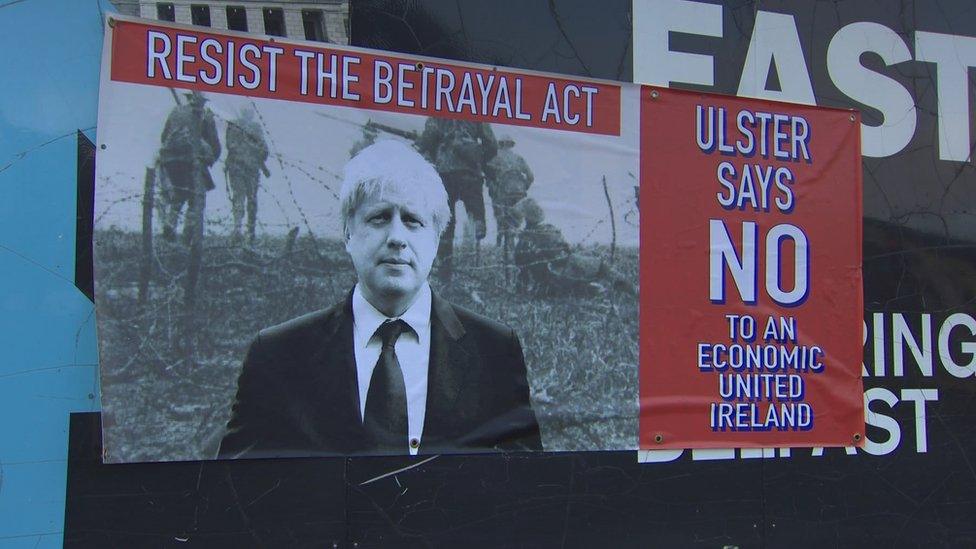
Some unionists and loyalists have described Boris Johnson's Brexit deal as "betrayal"
If Stormont voted to end them, there would be a two-year notice period, during which the UK and the EU would have to agree ways to protect the peace process and avoid a hard border.
Some MLAs have raised concerns that giving the assembly a vote on Brexit every four years would cause more division between the parties.
Does the power-sharing plan to restore Stormont mention Brexit?
The New Decade, New Approach document, external, agreed by the Stormont parties and the British and Irish governments on 10 January 2020, makes several commitments.
The British government promises "unfettered access for Northern Ireland's businesses to the whole of the UK" and to have it written in law for 1 January 2021.
It is a claim that has been repeated by the prime minister and other cabinet ministers in recent weeks - but much will depend on the definition of "unfettered access".
On Monday, the EU's chief Brexit negotiator Michel Barnier said new checks on goods entering Northern Ireland from Great Britain were an "indispensable" consequence of the Brexit deal.
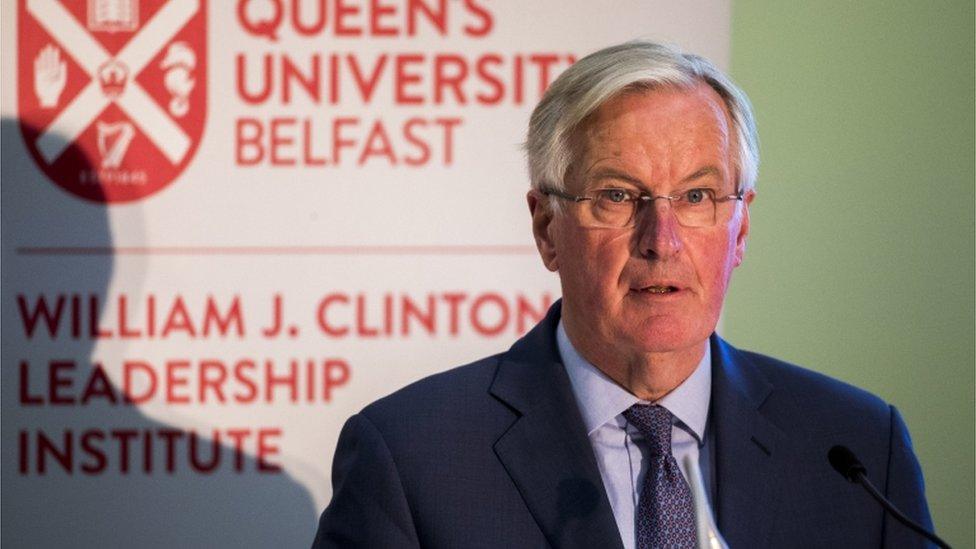
Michel Barnier delivered a lecture at Queen's University in Belfast
Businesses in Northern Ireland have also expressed concern about the possibility of some new administration, such as exit declaration forms on NI-GB trade.
The government has also committed to giving Stormont ministers a role in bodies which will oversee the Northern Ireland elements of the Brexit deal, and there will be a specialised committee which will focus solely on the NI part of the agreement.
The government also says it will ensure representatives from Stormont will be part of the UK delegation in any meetings that are discussing NI-specific matters, and that are also being attended by the Irish government as part of the EU's delegation.
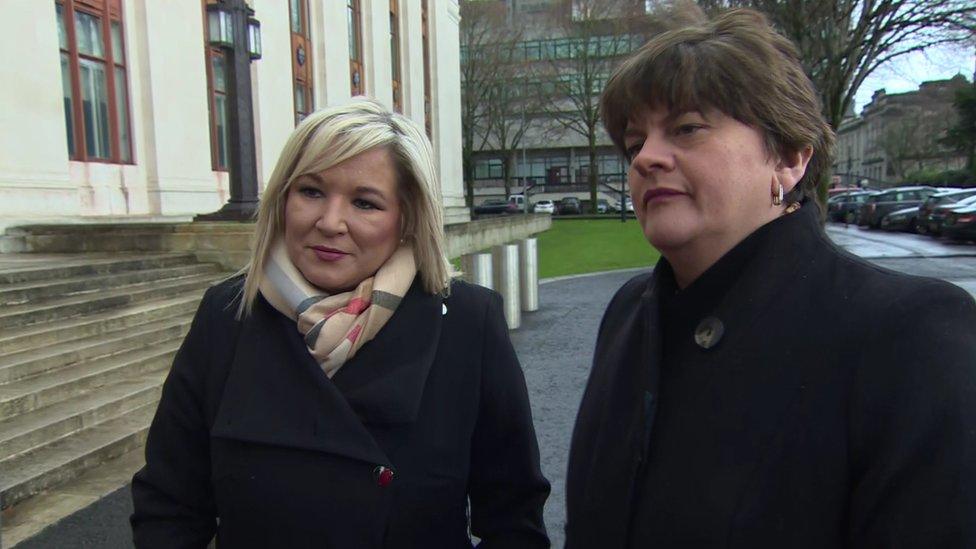
First Minister Arlene Foster and Deputy First Minister Michelle O'Neill will need to speak with one voice on Brexit
Can the Stormont parties work together on Brexit?
Despite being an issue that has deeply divided Northern Ireland politics since the 2016 referendum, the recently-restored executive appears to have a new strategy on Brexit, which for many, cannot come a moment too soon.
Northern Ireland had no ministers representing it throughout the Brexit negotiations, due to the absence of devolution.
On Tuesday, First Minister Arlene Foster and Deputy First Minister Michelle O'Neill attended a meeting of the Joint Ministerial Council in Cardiff, appearing to speak as one.
They recognise their parties look at Brexit through different lenses but want to ensure its outworkings do not impact Northern Ireland negatively.
The Executive Office is setting up a sub-committee to oversee how Brexit is managed.
A Stormont source told BBC News NI the committee was due to meet for the first time on Tuesday.
- Published30 December 2020

- Published27 January 2020
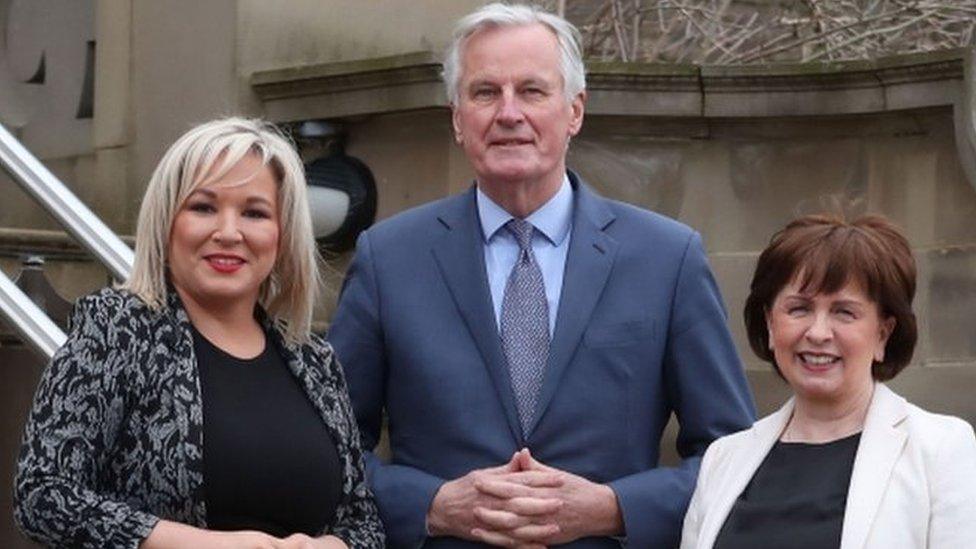
- Published20 January 2020
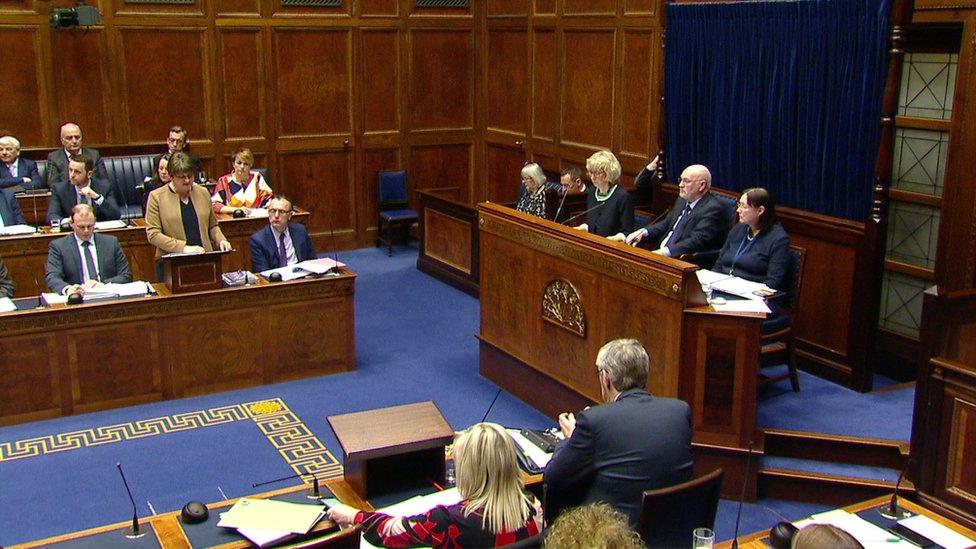
- Published1 February 2020
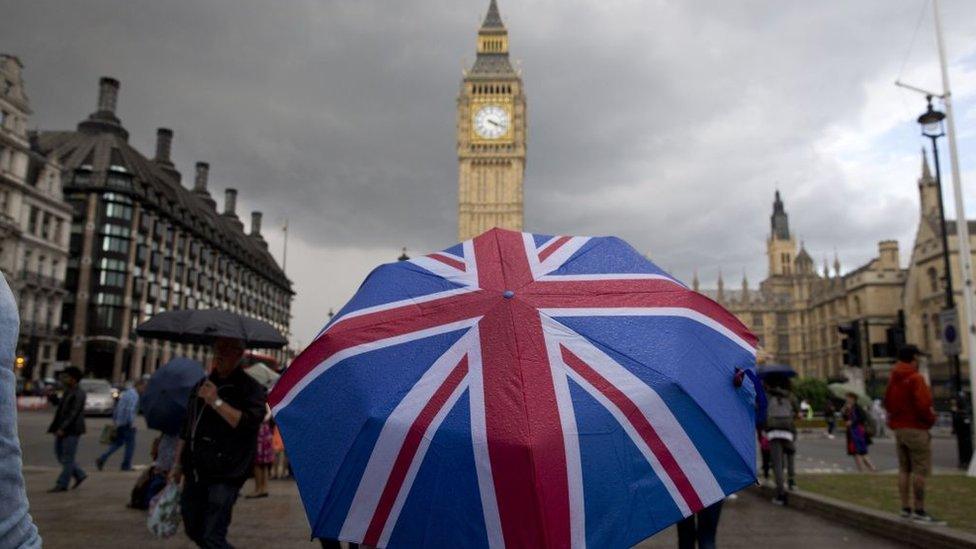
- Published1 February 2020
